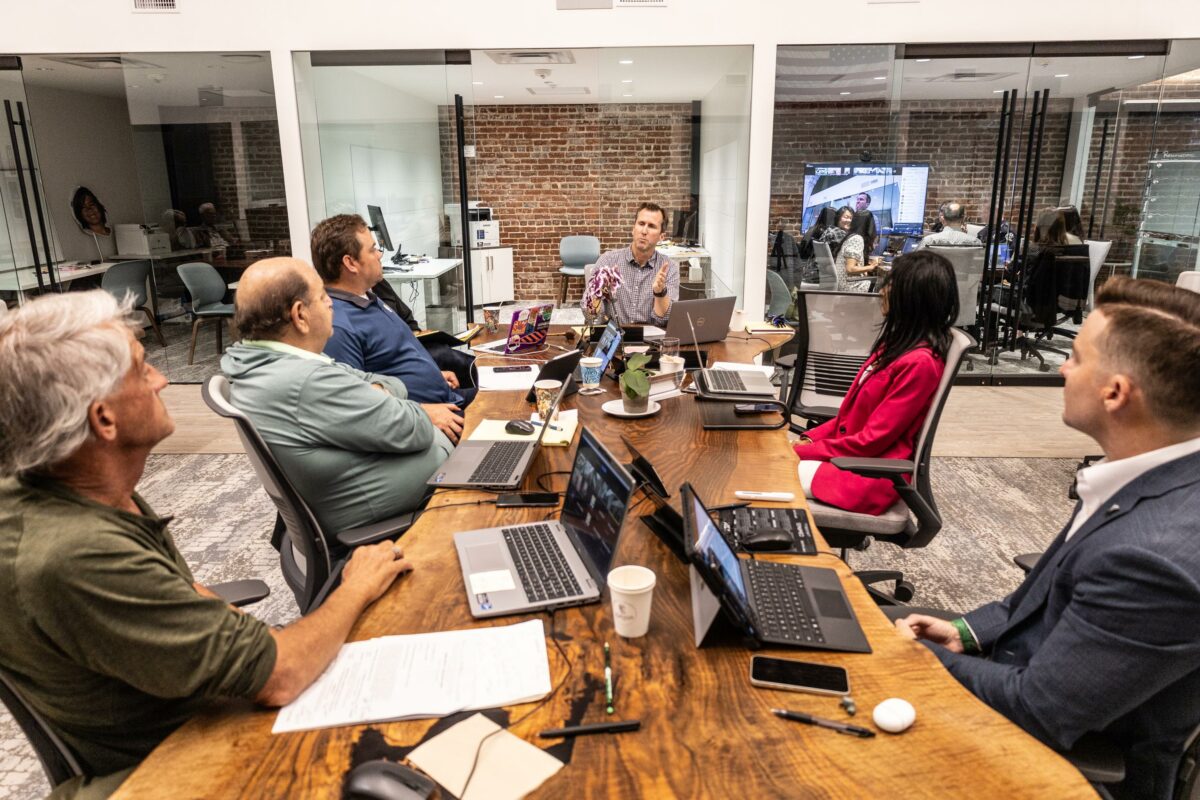by Kevin Cody
Hermosa Beach Mayor Justin Massey advised fellow councilmembers, during a Saturday June 1 council retreat, not to talk to the press about upcoming council meeting agenda items, and not talk to the press about past council meeting agenda items.
Prior to each council meeting, the city posts an agenda listing items to be voted on.
“It is generally not productive for council members to have contact with the press after a decision is made, to talk about something beyond what is in the [city] press release….” Massey said.
The mayor espoused his position during a lengthy discussion at the retreat on an agenda item titled “City Communications Plan and Protocols.”
The discussion began with Councilmember Dean Francois asking how to respond to reporters’ requests for interviews.
“Generally speaking,” Massey answered, “while there is no prohibition against an individual councilmember having communications with the press on an issue that is coming up on the agenda, or an issue decided by the council… indulging in conversation with the press in the lead up to a decision, or after a decision is usually something we want to leave to someone at the city who will speak with one voice so the community doesn’t get conflicting messages.”
Massey’s answer prompted Councilmember Rob Saemann to ask, “So, if there is an item on the agenda for next Tuesday, and the press contacts one of us, say about building an Eiffel Tower on the beach… we should refrain from expressing an opinion about it for the newspaper?”
“Yes,” Massey responded. “That’s my understanding of the basic ground rule councils over time have set for themselves. Because very little positive comes out of a councilmember, prior to having heard all the relevant information, and articulating the reasons for their decision, speaking publicly about how they think about an issue.”
Saemann said, “I totally agree with that.”
But then he asked, “So after council deliberation is over, and if you were in the minority, and the press asks how do you feel about the council deciding against what you were in favor of, we should refrain from making our opinion known then, too? It’s already public knowledge.”
“Yes,” Massey said. “But, you are absolutely free to refer them [reporters] back to the deliberations. All of our meetings are recorded.”
“The time for us to articulate how we feel about an issue and why is while we deliberate in a noticed meeting before the public.”
“I think adding to it after the decision has been made, especially if you were in the dissenting part of the council on a vote, can only serve to confuse the public.”
Saemann again concurred with Massey.
“There’s really nothing to be gained by it [talking to the press], anyway. It’s like trying to win the fight after the bell has been rung and the fight is over,” Saemann said.
“Especially,” Massey added, “on issues where we are not unanimous. It’s important in the aftermath of a decision that the community gets a clear message about what the decision is.”
Councilmember Dean Francois, began his comments on the subject by saying, “I generally agree and understand the concept.”
But Francois expressed concern that the policy conflicts with the right to a free press.
“Many times reporters want to engage in an interview on why you took the stand you took.
“It’s always good practice to be able to grant an interview and follow through on questions not brought up, or to repeat the reasoning explained in the council meeting.”
“We need to understand the reality of a free press,” Francois said. “If reporters ask, we should feel free to state our position on the record.”
“I disagree,” Massey said. “And I think the rest of the three council members disagree, as well. It’s not always good practice to grant interviews. The time to articulate how you feel about an issue, and why you are voting the way you are is during deliberations at a noticed meeting that the public knows about and can attend.”
“The press has any number of other sources. They can talk to the interested parties, they might inquire of staff… But having the decision makers weigh in, while there’s no legal prohibition against it, is not good practice. That’s been recognized by councils for quite a while in the city. I think it is recognized by this council.”
“That’s what we are talking about here, not what the law requires, but our ground rules for decision making as a group,” Massey concluded.
Neither councilmembers Michael Detoy nor Raymond Jackson spoke on the subject at the retreat.
City Attorney Patrick Donegan, in his comments, did not address how the policy Massey espoused applies to past agenda items.
But he said of upcoming agenda items, “From a legal standpoint, when making your opinion known prior to a meeting, particularly for quasi legislation measures, I would advise, don’t say a single word about it. Say, ‘Yes, that item, we’re going to hear it next Tuesday. Please show up to the meeting to make your voice heard.’
“Any indication that [the agenda item] is a good idea, or a bad idea, project opponents, or project applicants can say you’re biased. You prejudged [the agenda item]. And then you [the councilmember] and I will have to discuss if you can rehabilitate yourself on the record, or have to recuse yourself.”
In an interview following the retreat, on Tuesday, June 18, Massey said the policy of not discussing agenda items with the press also applies to councilmembers not expressing their opinions privately to residents. He said the policy is longstanding.
“There’s a rule that has gone around from council to council. My predecessors on the council told me when you’re in the run up to a decision and constituents ask you what do you think about an issue, the typical adage is you just want to thank them for their input. Tell them you’re taking all the information into account and you’ll have a decision once all the information is in.”
He said most of the councilmembers he has served with since being elected in 2015 have observed this policy.
Among those he named are current councilmembers Mike Detoy and Raymond Jackson, and former council members Stacey Armato, Jeff Duclos and Mary Campbell.
Massey said the policy should also be observed by incumbents seeking reelection in an election year.
“The same basic rules apply… incumbents shouldn’t be indicating that they’ve made a decision one way or the other [on an upcoming agenda item].”
“I want to be clear,” he added, “We’re not saying councilmembers cannot talk to the press after a decision. But their obligation when they do is to articulate the council decision. It’s not useful for a councilmember to call the press the morning after a decision and say, I really want to get off my chest why I am against the decision. The time for the councilmember to do that is during deliberations when the public is watching the meeting.”
“Having councilmembers explain the reasons for their votes is a recipe for confusing the public about the actual decision,” he said.
Massey said his interview with a reporter about the city’s communication protocols was not inconsistent with the policy of not talking to the press about agenda items.
“The [June 1] discussion was in the format of a retreat. We announced at the beginning of that retreat that no action would be taken.”
“When the staff report is published, that’s when councilmembers should leave it [comments to the press] to others.”
Massey said the city staff is preparing revisions to the city’s communication protocols based on the council’s input from the June 1 meeting, and will submit the revisions for the council to consider at a future meeting. ER










